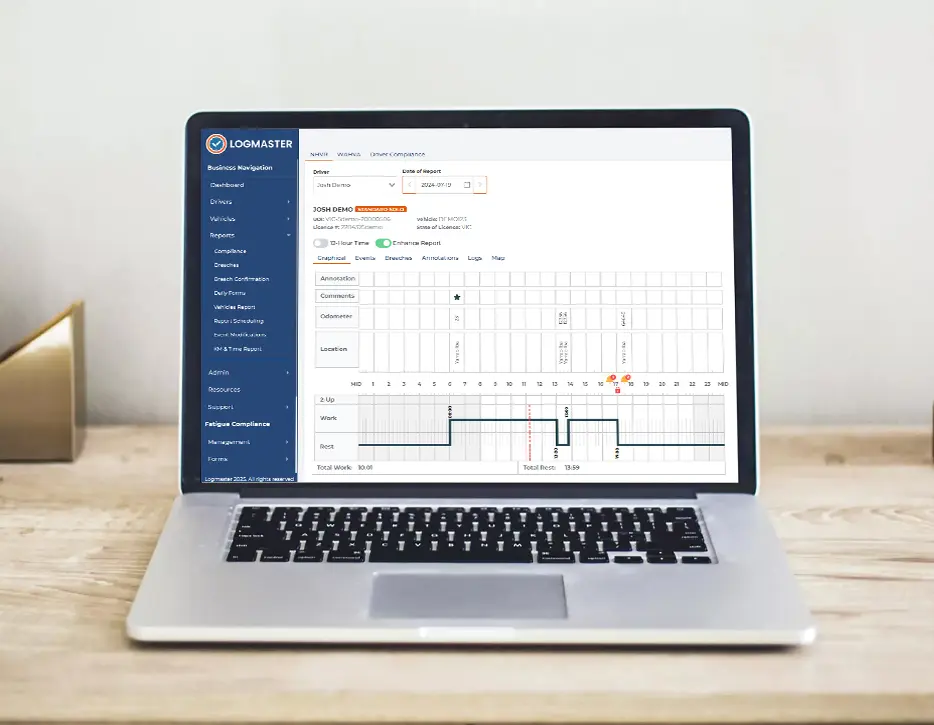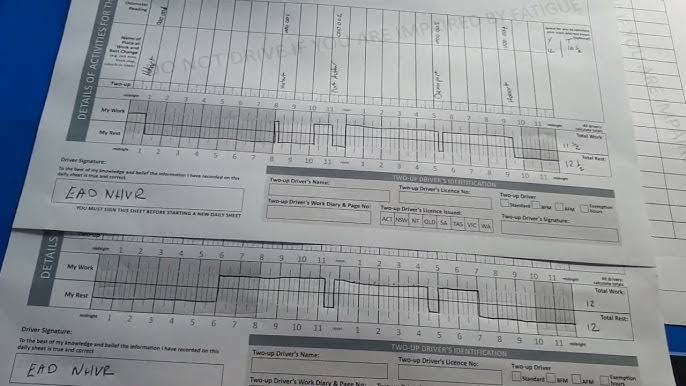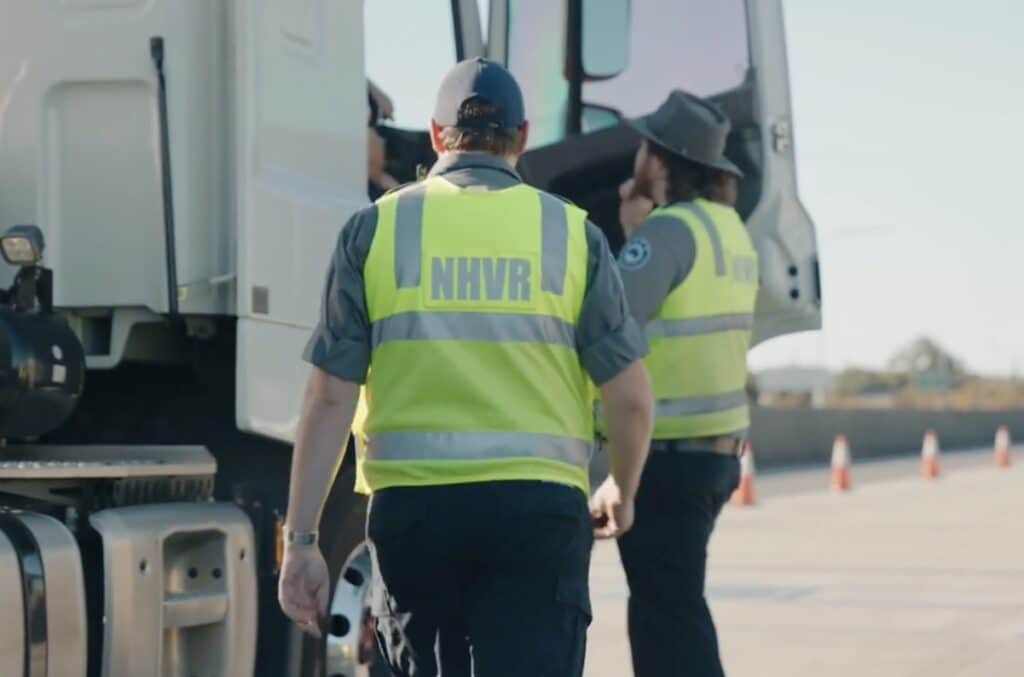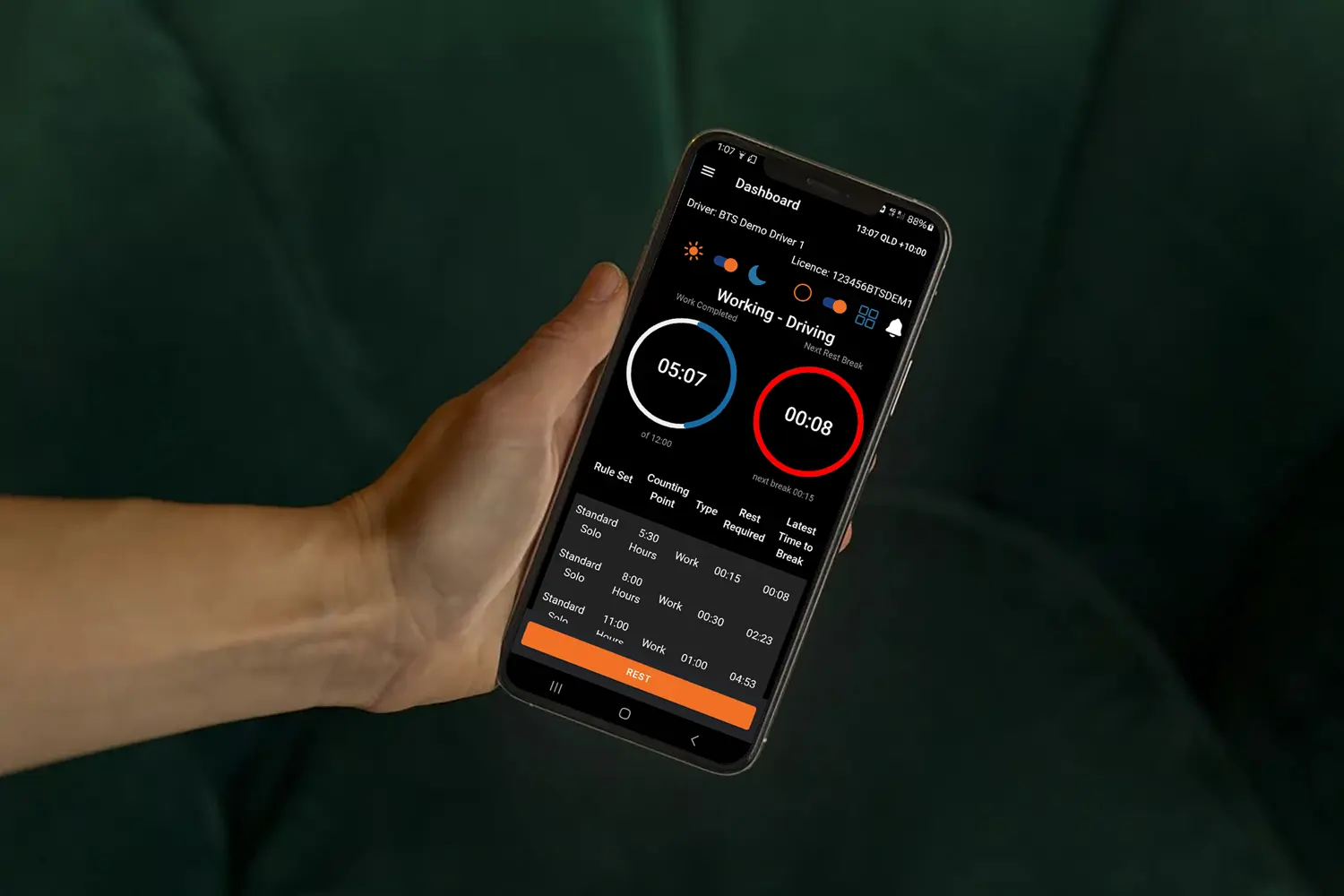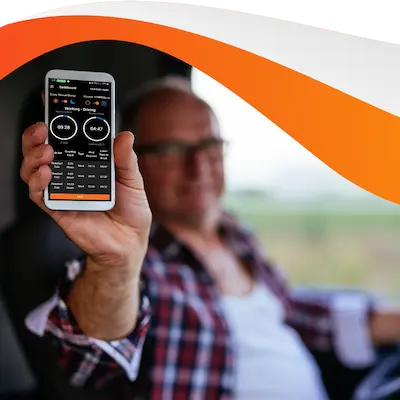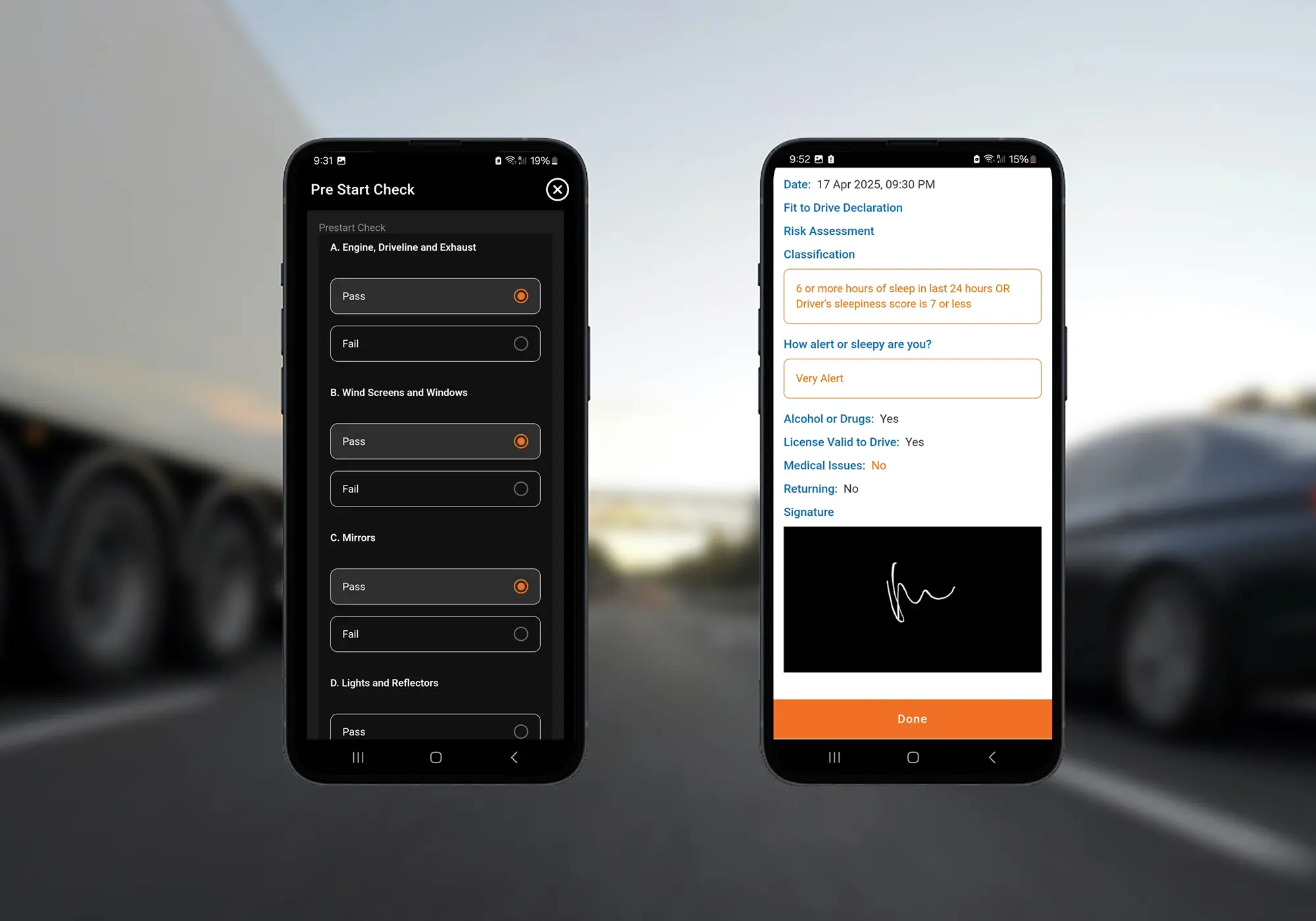Last week, I heard something that stopped me in my tracks.
At a recent transport industry event, a journalist relayed a conversation he’d had with a transport manager from a major operator — someone overseeing a substantial volume of business, with direct influence over both commercial outcomes and road safety. This manager admitted, somewhat casually, that he still hadn’t taken the time to research the operational benefits of Electronic Work Diaries (EWDs).

Why?
Because in his view, paper logbooks still had the upper hand.
“If a driver is running late on the way home,” he reportedly said, “you can just… sketch in a little extra time.”
No such “flexibility” with electronic work diaries, he shrugged. “They’re locked in.”
This was not a junior. Not an old-school owner-driver clinging to paper out of habit. This was a senior transport manager at a well-resourced company. And despite three full years of EWD availability, he had never sat down to understand what they actually offer.
I’m amazed he still has a career.
What He Missed
The idea that the only benefit of paper is the ability to fudge it is not just outdated — it’s dangerous. It confuses criminal workaround with operational flexibility and overlooks the very real, NHVR-sanctioned, rule-compliant advantages that electronic work diaries have baked in.
Let’s walk through just one of them: rounding.
Rounding in Paper vs Electronic Work Diaries
By law, paper logbooks require rounding work and rest times to the nearest 15-minute block. That means:
– If you stop for a break at 11:52am, you write 12:00.
– If you start work again at 12:08pm, you write 12:15.
– The time before 12:00 and the time after 12:15? Lost.
Multiply that across a day with three typical breaks — one 15-minute, one 30-minute, and one 60-minute — and it adds up fast. We ran the numbers:
Day: 21 minutes lost
7 Days: 2 hours 27 minutes lost
14 Days: 4 hours 54 minutes lost
That’s nearly five hours of extra, legal, usable time gained simply by using an EWD — not by working longer, not by breaking rules, but by removing rounding waste.
Put plainly:
All the time a paper diary might “let” you invent through fraud is already available — and legally so — by switching to electronic.
And There’s More
This is before we even touch on other advantages:
– Minute-by-minute tracking that helps drivers avoid rule breaches in the first place
– Banking of extra break time: if a driver takes more than the minimum break time required, the extra minutes are counted towards daily rest totals, improving operational efficiency
– The ability to edit records before final sign-off
– Less paperwork, less admin, less interpretation
– Instant visibility for compliance managers, and a defensible audit trail
– Real-time scheduling: Transport managers can make compliance-related scheduling decisions during the day or week by viewing remaining time for all linked drivers and allocating jobs to those still available
What It Really Means
The manager at that event didn’t just miss a detail. He missed the entire paradigm shift. EWDs aren’t a digital version of paper. They’re better than paper.
They give drivers more real time, and they give operators more real compliance. That’s the core exchange. Every minute reclaimed is a minute you don’t need to risk your license or your livelihood to invent.
The sad irony?
His misunderstanding has probably cost his business thousands of hours of cumulative time across his fleet, not to mention avoidable compliance risk.
Final Thought
Technology doesn’t fix everything. But in this case, the benefits are published, measurable, and real. If a person with commercial and safety responsibility still believes the benefit of paper logbooks is the ability to falsify them — and hasn’t investigated the genuine operational advantages of EWDs — they’re not being traditional. They’re being negligent.
For anyone in the transport industry who still thinks EWDs are just a digital straitjacket:
It’s time to read the standard.
It’s time to do the maths.
And it’s time to stop holding your drivers back by pretending that fraud is a competitive edge.
-Stewart, Logmaster Support


